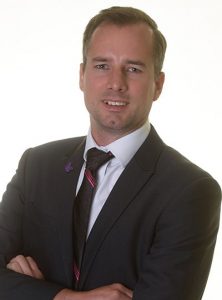Making a will is the only way to ensure that your estate goes where you want it to when you die. It is also the only way you can ensure that your funeral is arranged by the person of your choice – the person you have most likely discussed your wishes with. Without a will, arguments can arise, and family fallouts are likely, as in the case of Augel Pangou who died in June 2021, resulting in a dispute between his partner and his eldest daughter.
Augel and his partner of 13 years, Rina, were not married. They had two children, aged ten and seven upon his death, and a third child was born in November 2021, after his death.
Dying intestate
Augel died intestate, despite having a complex blended family that he probably wished to provide for. Augel lived in England at the time of his death. He had been married previously and had three children from this marriage. He had lived in France from 1998/9 to 2008/9, where his ex-wife and two of his children from that marriage still lived. At 21, one of those children, Jennyfer was his oldest child.
When a person dies intestate, someone must apply for letters of administration to be able to deal with the deceased’s assets. That person is the one who would decide the funeral arrangements. It should be the person with the highest priority under Rule 22 of The Non Contentious Probate Rules 1987. This rule stipulates that the first priority is the surviving spouse of the deceased followed by the children of the deceased and the issue of any deceased child who died before the deceased.
Rina may have expected to benefit from Augel’s estate and more than likely expected to be able to arrange his funeral, but this was not her automatic right as they were not married and there was no will. This would only have been possible if Augel had made a will, naming Rina as a beneficiary and executor. As it was, Jennyfer, as the oldest child had the right to apply for letters of administration and would therefore decide how her father should be buried.
Cohabitees don’t automatically have the right to make funeral arrangements
Despite the fact that Augel and Rina had lived as man and wife for 13 years and, as well as having two of their own children and another on the way, they had also looked after two of Augel’s children from his previous marriage until 2013, Rina had no say in his funeral arrangements. Unfortunately, a dispute arose between Jennyfer, who wanted her father buried in France, and Rina, who wanted him buried in England.
It appears that Augel had wanted to be buried in England – he made a note in his journal saying that he wished to be buried in the country of his permanent residence. The deceased cannot bind a personal representative as to how they should dispose of the body, but his wishes should be taken into account. Had Augel written his wishes in a will, there would have been no dispute.
The dispute led to Jennyfer issuing High Court proceedings pursuing confirmation that she was the person entitled to make arrangements for Augel’s funeral under the rules, and for a limited grant of letters of administration to allow her to do this.
Under special circumstances, the law does allow for the High Court, at its discretion, to grant the letters of administration to someone, who, but for the order within rule 22 (above), would have been entitled to apply. Such a grant of administration can be limited in any way the court sees fit.
Special circumstances
In this case, taking note of Augel’s own wishes – despite the fact that Jennyfer had said it was a forgery – the wishes of his family and friends and the place where he had his closest connections, the court agreed that Rina should be appointed as administrator and a limited grant that allowed her to make the funeral arrangements was granted. The court directed that Rina should give as much notice as possible to Jennyfer and Augel’s mother, Yvette, as to when and where the funeral was taking place.
In making its decision, the court found that Augel’s full life was in England with his partner Rina and their blended family and that his focus had been on his life here. He had a wide circle of friends in the UK and played basketball regularly. He worked five days a week. He had chosen to make the UK his permanent residence. Whilst Augel had telephoned his mother in France regularly at weekends, he had only visited France six times since moving to the UK and his mother had only visited the UK on three occasions. His daughter, Jennyfer, had only visited the UK three times.
As well as asserting that the journal was a forgery, Jennyfer said that Augel had told her that he wanted to be buried where his mother was buried and that a plot or vault had been purchased. The court rejected Jennyfer’s evidence, finding that the plot or vault had been purchased after Augel’s death and accepting a handwriting expert’s evidence that it was ‘highly probable’ that the note in Augel’s journal had been written by him.
Chris Shaw, senior private client advisor at Graysons says:
“This is a sad case that could have been avoided if Augel had made a will. It is never too early to consider what should happen to your estate when you die. Augel died early and suddenly at 45 years old. As many do, he probably thought that his estate – and the method of his burial – was safe with Rina. Unfortunately, the law has not yet caught up with modern lives, and unmarried couples are not protected in the same way as married couples if there is no will. Also, where there are blended families, such as Augel’s, it can be especially difficult if there is no will. There are extra complexities, and special consideration needs to be given as to what should happen to the deceased’s estate. As Augel died in the UK this case was heard in the courts of England and Wales. The result could have been very different had he died in France. Making a will would have saved his family from a lot of distress and expense.”
Find out more about making a will on our web pages or contact one of our private client experts who will guide you through every aspect of making a will that suits your needs and that of your family.
Author: Chris Shaw, senior private client advisor


